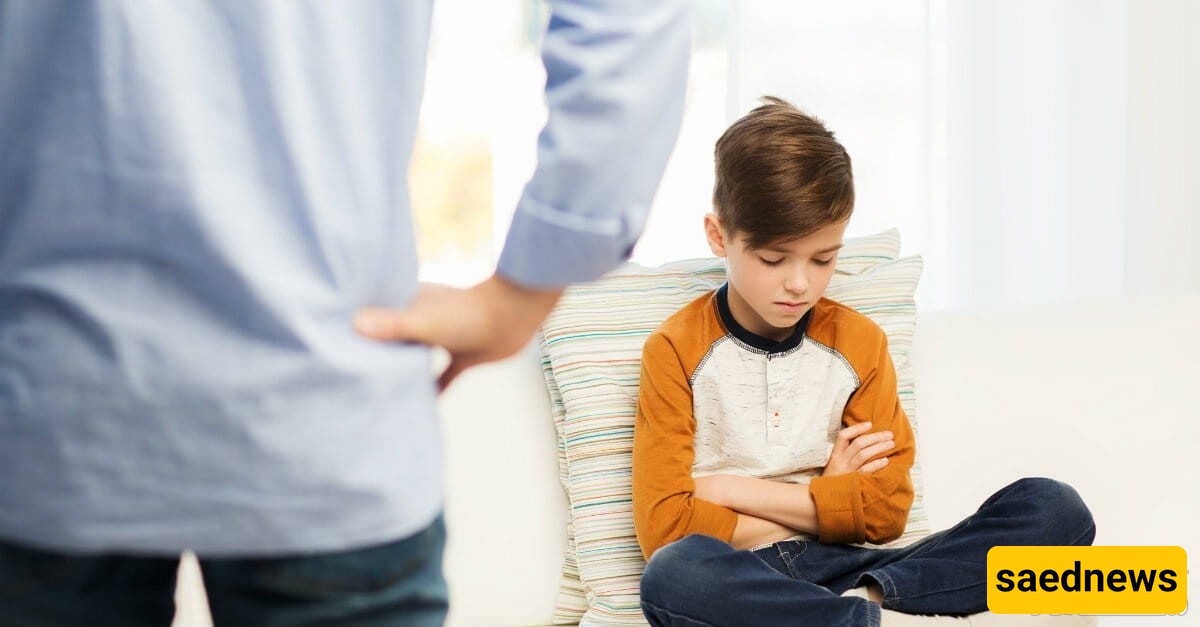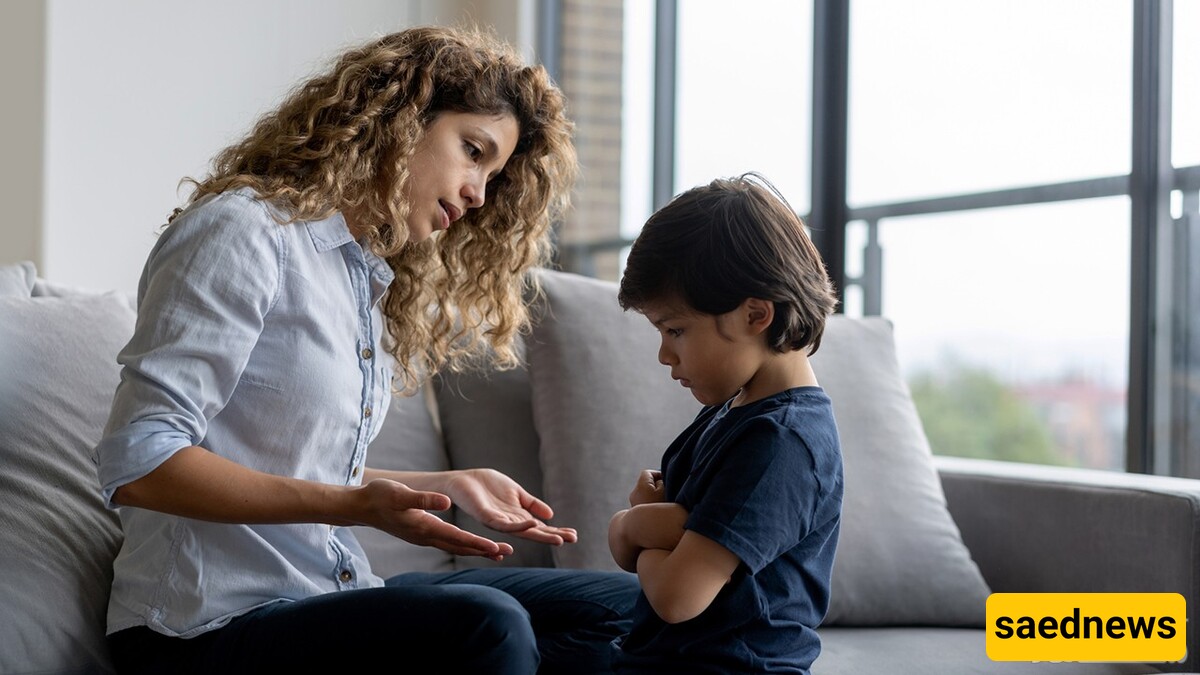Many emotional voids and deficiencies in adulthood are linked to the blame and humiliation experienced during childhood. Verbal punishment, like physical punishment, can have a destructive impact on children. This article examines the consequences of humiliating children.

Humiliating a child means belittling their dignity. Even the youngest children are human beings with emotions. Making a child feel inferior reduces their self-confidence. While children depend on their parents in many aspects of their personal lives, they should not be treated as objects or possessions. No one has the right to claim ownership over another human being or humiliate them. Therefore, parents should always speak to their children with respect.

Today, many parents resort to force and authority in raising their children. These parents were often raised the same way and believe this method is necessary for child-rearing. As a result, they impose strictness, humiliation, and degradation on their children.
Blaming children has destructive effects on their mental and psychological well-being. It has no positive outcomes and inflicts significant emotional harm. Blaming lowers self-esteem and can lead to shyness and embarrassment. Some parents exhibit aggressive behaviors, which negatively influence their children. It is crucial to recognize the significant role parents play in shaping their children's personalities. Some parents are aware of their harmful behaviors but struggle to change them.
Blaming a child can have various causes, but regardless of the reason, it leads to negative consequences. Parents should avoid it and instead adopt alternative approaches to address their children's misbehavior.

Children do not come with a manual, and each child has unique behaviors. This makes it challenging for parents to manage them effectively. Many parents believe they are doing what is best for their child, but physical punishment and blame hinder a child's ability to learn and can lead to various learning difficulties. Humiliating a child is never a suitable educational method.
One of the consequences of humiliating a child is making them stubborn. Giving instructions with kindness and moderation helps children become wise, capable, and disciplined. However, when scolding and humiliation occur publicly, the child becomes defiant instead of compliant.
Yelling at a child is a common form of humiliation in childhood. This approach does not contribute to a child's proper upbringing. Sometimes, parents lose control of their emotions and resort to shouting to correct a child's mistakes. However, this method makes children feel helpless and worthless.
For children, no one is as precious and respected as their parents. When they are met with shouting and anger from their parents, they feel as though their only source of security has collapsed.
Blaming and humiliating a child often result in increased stress and anxiety. Some parents mistakenly believe that shouting, scolding, and humiliating their child will make them reconsider their behavior. However, this approach leads to a complete loss of self-confidence, making the child withdrawn and socially isolated. Shyness in teenagers often stems from childhood humiliation.
One of the consequences of verbally abusing a child is the destruction of their self-esteem. When children face their parents' anger, shouting, and scolding, they feel worthless. Parents are the most powerful and kind figures in a child's world. That is why children often try to gain their parents' attention through charm and good behavior. However, when met with anger and humiliation, they feel rejected and blame themselves, leading to a decline in their self-worth.
One of the most serious consequences of verbal punishment is the deterioration of the parent-child relationship. If a child is subjected to constant verbal abuse during childhood, their trust in their parents is destroyed. To maintain a respectful and friendly relationship, parents must avoid humiliating and blaming their children.
If parents cannot control their emotions during stressful situations and react impatiently, they may resort to blaming and belittling their child. However, children model their parents' behavior. If they are treated with harshness and humiliation, they may, in turn, become indifferent to moral values and act recklessly.
Imam Ali (peace be upon him) said:
"Avoid frequent blame, as it emboldens the person being blamed and makes your reprimand ineffective."
Blaming and humiliating children can also lead to aggressive behavior. These children may become quick-tempered and irritable. When a child is humiliated, they instinctively want to defend themselves. If they feel powerless, they may resort to aggression. Such children lose their sense of authority and confidence, making it difficult for them to regulate their emotions and reactions.
Another effect of blaming children is a decline in their ability to cope with challenges. Children who feel powerless struggle to develop self-confidence and independence. As a result, they face difficulties in overcoming obstacles, making decisions, and adapting to societal challenges. They may also develop a belief that they are incapable of doing anything correctly. Psychological strength is essential for a child's development, but children subjected to constant criticism often lack resilience.
The harmful effects of blaming and humiliating children highlight the importance of treating them with respect. The best way to understand children is to put yourself in their shoes. Imagine accidentally making a mess at home and having your spouse yell at you, insult you, and call you clumsy. How would this make you feel?
Now, imagine your spouse comforting you and encouraging you to clean up together. How would that make you feel instead?
Children have even more delicate emotions than adults, and their upbringing profoundly affects their future personalities. If we want to raise a mentally healthy generation, we must refrain from humiliating our children.
Your child is not entirely defined by negative behaviors. They also possess good qualities that should be recognized. Instead of focusing solely on their flaws, acknowledge their positive traits first, encourage them, and then gently address their mistakes. Finally, clearly express your expectations. This method is the most effective and has a lasting impact.

Words carry both positive and negative energy. Choose your words carefully to create a peaceful and nurturing family environment. While blaming brings negativity, genuine praise fosters positive energy and emotional well-being.

